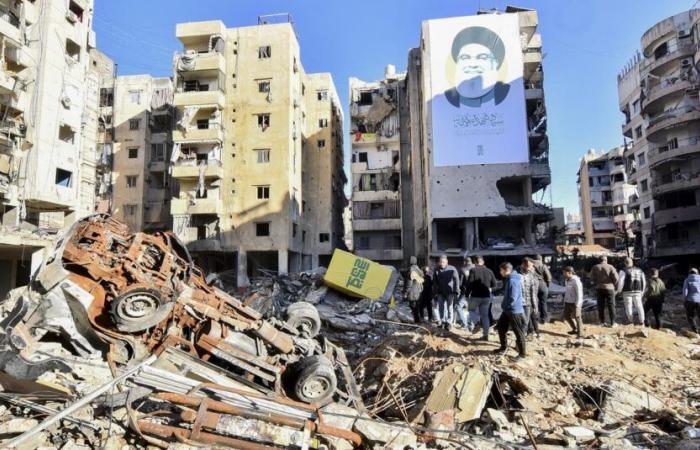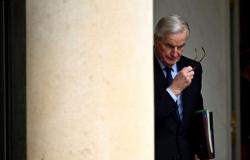Despite a ceasefire agreement between Israel and Hezbollah, the Israeli army continues to bombard Lebanese territory. The terrorist group responded Monday evening, after several days of unilateral attacks. How can we explain that the truce was only short-lived?
On November 27, 2024 at 4 a.m., a ceasefire between Israel and Lebanese Hezbollah came into effect. The next day, the Lebanese army accused the Israeli army of having “repeatedly violated” the ceasefire agreement.
Despite this truce, Lebanese territory has been struck several times by Israel. On Monday, an Israeli drone targeted a Lebanese army post in Hermel, a region of the Bekaa plain in eastern Lebanon, far from the border with Israel, injuring one soldier according to the army. A man was also killed by an Israeli drone strike on the village of Marjeyoun near the border in southern Lebanon, the Health Ministry said. The Israeli army claimed to have “targeted military vehicles that were operating in the area of a Hezbollah missile manufacturing site in the Bekaa.” She added that she had “struck terrorist infrastructure sites used for arms smuggling near the Syrian-Lebanese border in the Hermel region”, and indicated that she was “investigating” the circumstances in which the Lebanese soldier was injured.
Again this Monday, the President of the Lebanese Parliament, Nabih Berri, affirmed that Israel had violated the ceasefire agreement “at least 54 times”. The accusations were denied by the Jewish state.
There is indeed a “political and technical violation” of the ceasefire, confirms Elena Aoun, professor of international relations at UCL. French diplomacy, one of the main players in this agreement with the United States, insisted on Monday with Israel that the truce be respected.
Israel's strategy
Israel wants to take advantage of the ceasefire “to push its advantage on the ground to the end and reach Lebanese neighborhoods to which it did not yet have access,” explains Elena Aoun. The Israeli government wants to show internally and to the international community that it has control over the situation. It's an intimidating posture».
Why did the Israeli government agree to a ceasefire if it had no intention of respecting it? “Netanyahu has been backwards on this agreement. He gave in to pressure from the United States because he is cornered on several fronts», informs Elena Aoun. The Israeli army is suffering and the Prime Minister is weakened by the arrest warrants from the ICC and several scandals. According to the latest, Netanyahu is accused of having led an influence campaign with the aim of prolonging the war in Gaza, after Israeli army documents were published in the press.
On the other hand, the Israeli population was not satisfied of this ceasefire agreement, as did the Minister of National Security, Itamar Ben Gvi (far right).
In a statement released earlier, Nabih Berri called on the committee responsible for overseeing the truce, which includes the United States and France, “to urgently begin its action and force Israel to stop its violations and withdraw” from Lebanese territory. For Elana Aoun, the international community “must quickly assume its responsibilities. We risk slipping if the sponsors of the agreement do not intervene.”
“The truce is only due to Hezbollah's desire not to retaliate. He will remain in this posture of caution until Israel no longer leaves him a choice,” suggests the Lebanon specialist. The truce will therefore only have been a mirage since the Lebanese terrorist group indicated Monday evening that it had attacked an Israeli military position.






